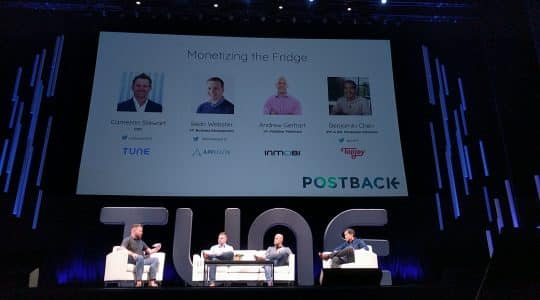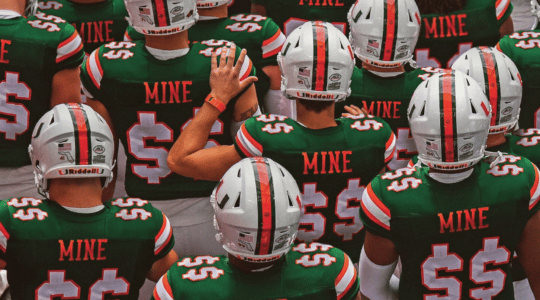If you’ve been keeping up at all, California just passed an affiliates nexus tax, effective immediately. Governor Brown signed the legislation on Wednesday, June 29th, and there have been hundreds of articles and outcries against this budget trailer bill. The PMA has been fighting nexus tax proposals all over the country, already winning several battles and losing some others, but California is certainly the biggest domino to fall.
Amazon controversy
Yesterday, Amazon announced they’re shutting down their affiliate program in California as a result of this legislation, almost instantly ending the incomes of thousands of affiliates in that state. My first reaction is to feel bad for Amazon, losing all that revenue, but I stumbled on this article by Danny Sulivan claiming that Amazon is giving affiliates less than 10 hours notice and then they’ll stop getting affiliate payments. Terminating their contracts won’t immediate impact Amazon’s traffic though, and Danny proposes that Amazon is really not that upset about ending their affiliate obligations since many of their most lucrative affiliate links will stay in place and continue to send traffic (a ton of work for affiliates to change them). It’s a pretty interesting theory. Almost as if Amazon was looking for a reason to start fresh.
“Dear Jeff Bezos…I’m not sure how many affiliate links I have on the blog. Not that many, maybe 25 to 50 in all. But until about an hour ago, those links were worth something to you (Amazon). Now, because of your squabble over the sales tax issue, you’ve decided to just take for free what you’d previously paid for. If I don’t find time to track down and kill those links, you keep grabbing orders that get made through them and keeping the cut I previously received.” – Danny Sulivan, Search Engine Land
How far can nexus go?
That aside, I wonder where this is all heading. Do we just apply this legislation to direct affiliate relationships? What defines a direct affiliate relationship? According to this ruling, customers who purchase from out of state companies but were influenced by an affiliate that is in-state must pay sales tax, and the out of state company is responsible for collecting it. So, what if the advertiser (like Amazon) was not actually paying affiliates. In fact, they were just paying a set marketing budget to an affiliate network, who was in turn arbitraging and paying affiliates on their behalf. If that company is located in-state, does that mean the advertiser has a business presence in that state. What if the affiliate network is out of state but their affiliates are in California?
What about traffic giants like Google?
I think we’re dealing with a much more complex problem. For example, Google Adwords certainly influences user buying decisions in the state of California, they also happen to be located in the California. If an out of state advertiser is paying Google for traffic (even if it is on a per click basis vs. a per conversion basis), isn’t Google basically one big affiliate working on their behalf to bring in new customers? Do businesses have to collect sales tax from all sales that result from their PPC efforts in other states like California?
What if?
What if I broadcast television commercials in California with a syndicate located in CA? or maybe I have a simple partnership with a business in another state that refers business to me, does that mean I have a presence in that state and have to collect sales taxes for that state?
It seems to me that if politicians want to require out of state companies to collect sales tax for sales in their state, then that should their policy across the board, not this very strange and slippery ruling that unclearly defines the meaning of marketing and advertising relationships and basically targets affiliate marketing.
The only reason this is even an issue is because unlike many marketing channels, affiliate marketing can actually be tracked, easily revealing the source of influence. That is what even makes it possible to credit an in-state affiliate/publisher with an out of state sale.
#epicpoliticalfail
Author
A digital marketer by background, Peter is the former CEO of TUNE, the enterprise platform for partner marketing. In 2018, he sold TUNE’s mobile measurement product to Branch, unifying measurement and user experience. He led TUNE’s efforts to bring better management technology and automation to marketing partnerships, across affiliates, influencers, networks, and business development relationships. Follow @peterhamilton




If we (Europian company) use Hasoffers, we need to pay these taxes, too?
I don’t believe you have to collect sales tax if you are operating outside the U.S.
I recently wrote a letter to Governor Brown regarding the same point you make about selective taxation. I agree with you, why is internet advertising liable for this tax and other media types are not? Because our media is “more trackable” mean we have to pay more taxes? This is how California wants to fix it’s budget crisis? It’s disgusting and it really makes you rethink owning a business in this state. What’s next? I can only imagine where this leads (pun intended).
That’s awesome Steve. Thanks for playing your part in the fight and taking action. I agree with the ridiculousness of the ruling, and I hope the right people can show politicians the larger impact of this decision.
Missouri is my state of residence.
In Missouri, you are supposed to pay use tax if you purchase an item without paying your home state’s sales tax and you use, give away, store, or consume that item in your home state.
Several States have a Use Tax but don’t have much of a tracking / collection system in place. Just because they don’t collect it doesn’t mean that you don’t owe it. So …
California policy / tax makers have more on their hands than they have bargined for … can anyone say “fault line” ?
Such parochial thinking
See http://www.scribd.com/doc/59061145/Cal-AB-28 for the actual text of the California law. Section 6203 (c) (5) (C) exempts merchants that are just displaying ads without the Caifornia-based host doing anything to actually promote the merchandise to specific customers in California. Presumably, this exemption was added because Google is in California and doesn’t want Adsense to be affected by the law.
So… Merchants thatt are simply using Adsense and similar tools to have their ads displayed don’t have to worry about collecting California sales tax. It is possible that sies displaying such ads may have to certify that they are not doing anything to target the ads specifically to California customers.
That’s my interpretation. Anyone else?
Going only by your comments, it sounds like that would also exempt any California affiliates of Amazon who aren’t specifically targeting California residents.
But, like most aspects of these ridiculous kinds of tax law, the practicality of tracking the details is akin to tracking the migration paths of individual gnats. What, gnats don’t migrate? TRACK THEM ANYWAY!
I hate this new law, but Amazon and Google are completely different. Amazon sells a product and the state says that they must pay the sales tax if their product is sold by someone operating their business in California. Most of the Google adsense revenue is not based on the sale of a product, so the sales tax is not an issue.
thanks for your comment julie. I guess maybe I was unclear. Are you saying that companies selling products through google adsense are different than amazon? For example, what if amazon were to use adsense to sell their products to California residents. What I’m saying is that anyone who contributes to the sales of your products and services should be treated the same. Even if you are only getting leads from google, those are still contributing to dollars and cents for your company.
I think she means that with Amazon you don’t earn a commission simply for a click, the person who clicks through then has to go ahead and buy something, and then you get the commission, whereas Google adsense pays for the more abstract click regardless of what the consumer buys or not after that. So it’s easier to pass this law on Amazon because they do track how those leads get generated, whereas with Google, it’s less clear when a click leads to a specific sale.
I guess that’s where I question the law as fair treatment. Because it is trackable you get taxed?
I think she means that with Amazon you don’t earn a commission simply for a click, the person who clicks through then has to go ahead and buy something, and then you get the commission, whereas Google adsense pays for the more abstract click regardless of what the consumer buys or not after that. So it’s easier to pass this law on Amazon because they do track how those leads get generated, whereas with Google, it’s less clear when a click leads to a specific sale.
We ran into a similar issue with the daily deal space, but they’re unique because affiliate revenue is not taxable based on the nature of daily deals only being taxable at the point of redemption. I could write a guest blog post on this if you’re interested.
thanks Chris. that sounds like an excellent topic!
[…] its fight against the Amazon tax across state lines, over at the HasOffers blog, Peter Hamilton explores an interesting question: Has the Amazon tax been forced onto segments of online advertising because it is trackable? […]
[…] Allan of LinkShare, David Andre of Cartera, and Matthew Schaefer. Related reading on this blog: How Far Does Affiliate Nexas Go? Texas Affiliates Show Up for Battle Amazon Affiliates Are Not […]